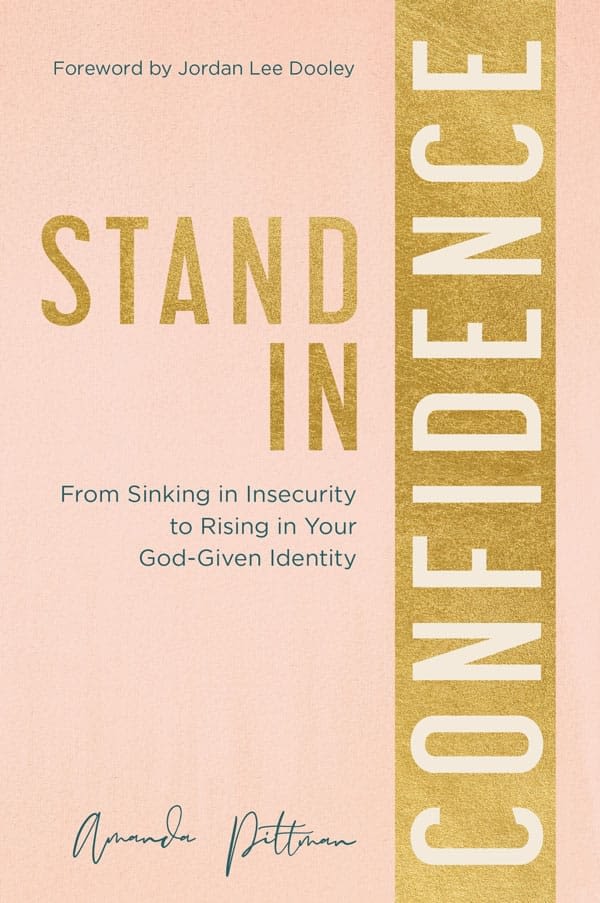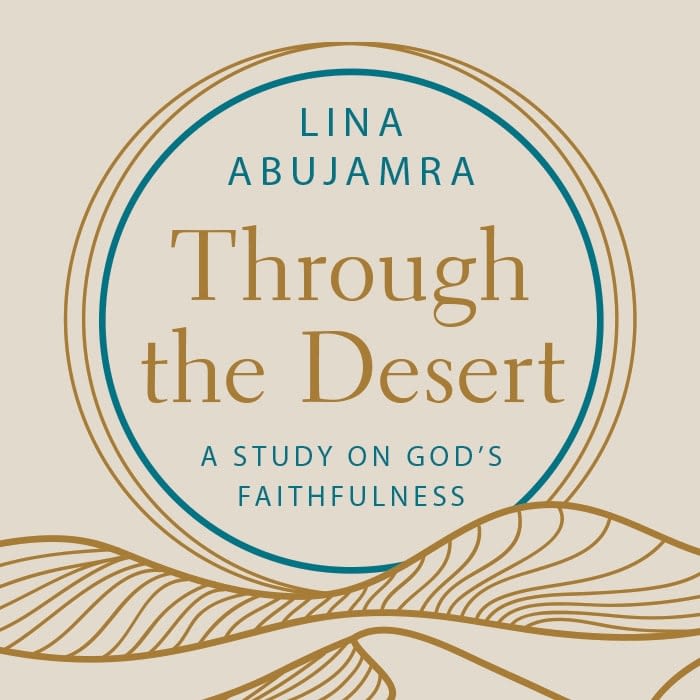“You look cute,” the well-dressed woman said to me, leaning in my direction but continuing to walk past me toward the elevator doors.
“Well, thank you, so much!” I responded, stunned by her kindness, welcoming the moment of pause from the work I’d been so engrossed in while waiting for my doctor’s appointment.
Her sharply dressed presence was remarkable, but it was her “set-apart kindness,” similar to what I see evidenced in Queen Esther’s life in the Bible, that commanded my attention.
Leaning forward in my chair as if wanting to chase her down with my words, I said, “I want you to know, I sensed my Jesus coming—before you spoke a single word. No mask can hide the beautiful, significant essence of Christ.”
Slowing and turning her gorgeous high heels away from the elevator door she’d approached, she said with surprise and muffled excitement, “Well, I sure hope that’s the case!”
Laugh lines formed in the corners of her eyes, announcing the huge smile party going on beneath her mask, as she waved goodbye and disappeared behind the elevator doors.
It’s interesting how a single moment in time can leave either a positive or negative impression. The presence of one person can unexpectedly leave us for the better, or worse.
So many times, I’ve questioned how or if my presence influences others at all.
What about you? Do you ever find yourself questioning what to say and how to say it? Wondering if your presence or your words carry any significance?

Who Was Esther in the Bible?
This week, with the sunlight pouring into my window while sitting in my favorite chair with coffee in hand, I read about Esther, who lived in a time when women were only as significant as the number of children they birthed.
During Esther’s lifetime, neither her words nor her actions typically would have mattered much. Perhaps you can relate to finding yourself in circumstances where your words and actions carry little weight in bringing about the changes your heart desires, and if you’re truly honest, maybe you feel slightly (or plenty) insignificant? Well, buckle up, Buttercup, and get ready for Esther’s kindness and courage to inspire and encourage you as she has inspired me.
The book of Esther in the Bible is a powerful piece of history written by a Persian Jew well-acquainted with the culture of court life in 465–331 B.C. In the first chapter, we are introduced to King Ahasuerus, ruler of over 127 provinces stretching from India to Cush, better known as Ethiopia. In the third year of his reign, the king hosted a mind-boggling 180 days of feasting. Everyone who was anyone had been invited. Impressing the people with the wealth of his kingdom and proving his magnificent greatness was top priority to the king.
At the end of that event, he held an additional week-long banquet in the garden courtyard of the royal palace for all the people—from the greatest to the least in Susa. The designer in me loves that the book of Esther offers incredible, grand details of the palace’s décor, describing the white cotton curtains hung with violets, and the silver and gold couches placed on porphyritic pavement inlaid with precious stones and mother-of-pearl. If those things weren’t enough to impress the guests, the free-flowing royal wine would have done the trick. With every household wine steward instructed to serve as much as each person wanted, the environment must have been completely out of control.
This is where my heart goes out to Queen Vashti, who was summoned by her husband to parade her beauty before his drunken friends and attendees. She must have been wearying of the king’s charades after so many days of partying. Sadly, her refusal offended her royal husband, and his anger burned with fury towards her. The seven trusted men he consulted didn’t help matters. The decision they came up with, meant to make an example out of Vashti, made it so that she would never enter the king’s presence again. Her royal position was to be given to another woman who was deemed more worthy than she. And so, the search began for a beautiful young replacement for the king.
Esther was beautiful—more than any other young maiden. But there was a notable “something more” about her that could not be hidden. Esther’s pleasant countenance toward the people she encountered, like the king’s eunuch in charge of the harem and the women who served her, positioned her for an anointed assignment. Her beauty went far beyond an enviable figure. The uniqueness of her demeanor left the king smitten.
This part of Scripture almost reads like Rodgers and Hammerstein’s Cinderella story, doesn’t it? But upon closer examination, Esther’s story, as well as our own, reads like a story in process with holy inclusion of people whom God invites as key participants in the completion of His grand purposes. Mordecai, Esther’s relative, was one such person, having gained wisdom from his life as an exiled Jew.
Esther’s godly approach made the king receptive to her as she revealed information passed to her by Mordecai about how two of the king’s officials were planning an uprising against him. Taking no credit for herself, Esther’s beautiful restraint and humility is displayed as she attributed this discovered plot to Mordecai. Both of the men were hung on the gallows.
The king continued aligning himself with untrustworthy men, honoring Haman with his signet ring. As Haman’s pride grew, so did his boasting, insisting everyone bow to him. But when Mordecai refused, Haman became angry and planned not only Mordecai’s death but the death of the entire Jewish race. Haman lied, telling the king there was a people group not following his laws who needed to be destroyed in every province.
By listening and gathering correct information, Esther showcased truth and integrity. However, it was her courage in defying an order of the king, inviting herself into his presence without being requested that is most notable.
Keep in mind, this particular king had a history with disposing of queens who defied his orders. In addition to that boldness of courage, her restraint in waiting for the appointed time garnered favor from her husband, and Haman was proven guilty and hung on the gallows that he had built for Mordecai. But it was Mordecai who was brought into the palace and honored by the king.
One woman’s willingness to boldly speak truth with the right timing saved an entire nation of Jews.
Esther’s Story Invites Us to Participate in Our Own “For Such a Time as This” Moment
Although the book of Esther makes no mention of God, His presence is palpable throughout Esther’s actions.
Similarly, the masked woman in the waiting room didn’t speak of God, but I most surely felt God’s heart. That stranger may never realize the impact of her simple, yet powerful compliment shown in the waiting room. It held so much significance that it helped push away the dark voice I’d heard earlier in the day from the reflection in the mirror.
I doubt Esther imagined herself as a key player in God’s rescue plan for His beloved nation. As we model all that He is, His kindness becomes our greatest weapon, impacting the lives of people waiting in doctors’ offices or in kings’ courts.
Life has an uncanny way of inviting us to participate in “such a time as this” experiences. Moments when our kind interactions and poised responses create room for impacting and influencing the lives of others. As participants of heaven’s greater purposes, we become modern-day Esthers. Everywhere we go, with every step we take, whether in beautiful high heels or our favorite worn tennis shoes, we can bring truth and wisdom into a dark world.
What a blessing to know the God of good reason comes near when we fail to understand the reason things happen the way that they do. We can never perceive the scope of timing, people, and places God aligns to complete the story of our lives. Nor can we grasp the opportunities He prepares that bring conclusions to stories yet hanging in the balance. He works within our need for something more wonderful than we could ask, dream, or imagine.
We have so much to learn from Esther, who clung to hope, no matter what evil she confronted. Our Esther kind of courage sends a message to the world, saying: I am a royal daughter of the Highest King, and I am here for it all. I willingly choose to humble myself before God’s trustworthy ability to complete far GREATER things than my human nature understands—”for such a time as this”!
When have you had a “for such a time as this” moment? When has someone done something for you that may have seemed insignificant to them but had a big impact on you?
Ready to Be Inspired by Even More Great Women of the Bible?
After you’ve had a chance to prayerfully reflect on the story of Esther in the Bible, be sure to check out these related articles for even more encouraging stories and lessons from the famous women of the Bible!
- Strong Women in the Bible
- What Mary Magdalene in the Bible Can Teach Us About Courage
- What Hannah in the Bible Teaches Us Today
Visit this link to see a complete list of all the Inspiring Women of the Bible we’ve covered so far on the Esther Press website. Alternately, be sure to check out these great recommendations for Bible Studies about Women in the Bible.

Stand in Confidence
Culture, church, and life have sold women narratives about who they’re supposed to be. Amanda Pittman explains how women can rewrite their damaging self-beliefs with the truth about their God-given identity and finally stand in confidence.

Love Life Again
In Love Life Again, popular Proverbs 31 speaker and author Tracie Miles challenges us to stop waiting for circumstances to feel perfect and enjoy the life we’ve been given.




